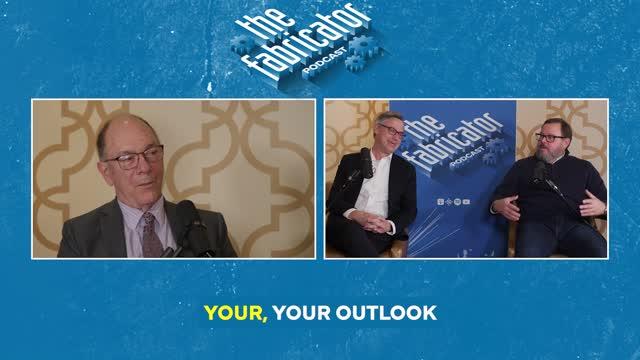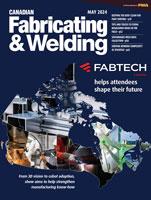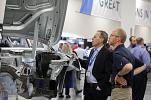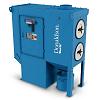Editor
- FMA
- The Fabricator
- FABTECH
- Canadian Metalworking
Cautious optimism remains in manufacturing sector
Chris Kuehl offers his perspective on industry outlook
- By Rob Colman
- July 4, 2023
During this year's FMA Annual Meeting, the Fabricator Podcast sat down with Chris Kuehl, economist with Armada Corporate Intelligence and a contributor to FMA’s Fabrinomics e-newsletter, to get his perspective on the outlook for manufacturing and metal fabrication over the next while. Although he recognized the market concerns, he also pointed to a number of reasons for optimism.
Kuehl noted that people are separating what they are hearing about the economy from their own experience. Manufacturers are seeing growth, with good business and encouraging trends in a lot of areas, which contradicts what many economists are saying. Kuehl understands why.
“There’s a lot of future concern that comes out of the analytical community, who look at things like the potential for higher interest rates and persistent inflation and the worker shortage and decide that that is going to have a dramatic impact on the economy, which it does,” said Kuehl.
What this doesn’t account for, said Kuehl, is the fact that businesses cognizant of the coming risks are already trying to address these issues proactively. To manage the worker shortage, they are looking at ways to make themselves more efficient through the use of robotics. To address inflation, they are trying to control costs by looking for more competitive bids for supplies. Anecdotally, I’ve heard of similar cautiousness and pivoting among shops in Canada. Those considering investments in new machines are taking a bit longer to pull the trigger, making sure it’s the right investment. Business is moving forward, but shop owners are being even more strategic.
An anomaly that is occurring in industry right now, according to Kuehl, is that many companies aren’t laying off employees the way they might have in the past, as interest rates rise and businesses adjust. Why? Because they are concerned that they might not get those people back. It took shop owners a long time to find those people; they’re concerned that if they get laid off, they’ll be gone for good.
The silver lining to the interest rate hikes, said Kuehl, is that banks are starting to see the value of lending again. For the past 10 years, those banks have been risk averse because there was no margin for them. Now that they have some rate margin, they are becoming a lot more interested, especially in capital equipment, because that means there is collateral in the deal.
Kuehl had many more insights over a wide-ranging discussion with FMA’s Dan Davis and Tim Heston. To watch this and other episodes of The Fabricator Podcast, visit www.thefabricator.com/podcast/channel/the-fabricator-podcast.
subscribe now


Keep up to date with the latest news, events, and technology for all things metal from our pair of monthly magazines written specifically for Canadian manufacturers!
Start Your Free SubscriptionAbout the Author

Rob Colman
1154 Warden Avenue
Toronto, M1R 0A1 Canada
905-235-0471
Robert Colman has worked as a writer and editor for more than 25 years, covering the needs of a variety of trades. He has been dedicated to the metalworking industry for the past 13 years, serving as editor for Metalworking Production & Purchasing (MP&P) and, since January 2016, the editor of Canadian Fabricating & Welding. He graduated with a B.A. degree from McGill University and a Master’s degree from UBC.
- Industry Events
Automate 2024
- May 6 - 9, 2024
- Chicago, IL
ANCA Open House
- May 7 - 8, 2024
- Wixom, MI
17th annual Joint Open House
- May 8 - 9, 2024
- Oakville and Mississauga, ON Canada
MME Saskatoon
- May 28, 2024
- Saskatoon, SK Canada
CME's Health & Safety Symposium for Manufacturers
- May 29, 2024
- Mississauga, ON Canada





















